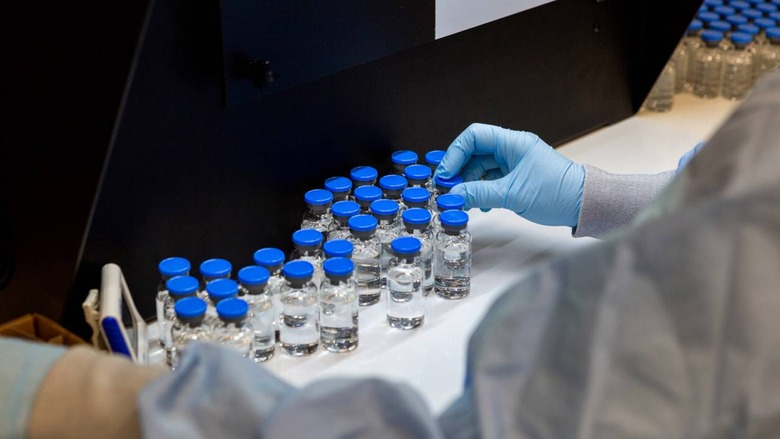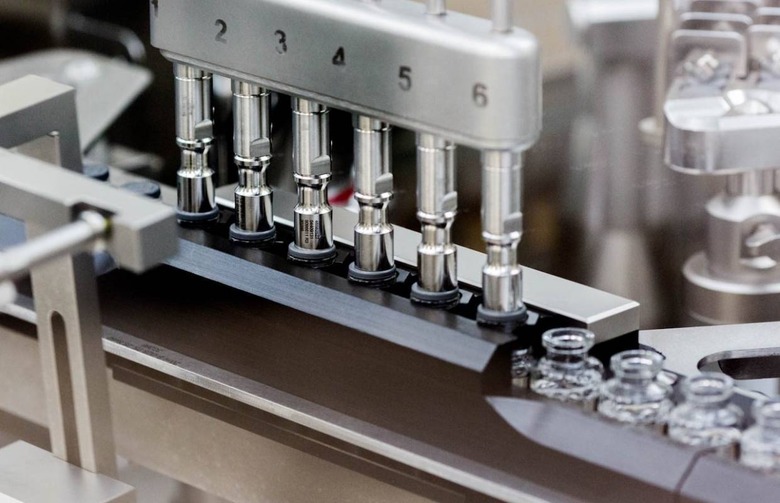Gilead's Remdesivir Coronavirus Treatment Trial Reports Positive Results
Drug-maker Gilead has reported the latest results of a study of its experimental drug remdesivir in treating severe COVID-19 cases, and it's tentative good news in the hunt for coronavirus treatment. Not yet licensed or approved for use in cases of COVID-19, remdesivir has been the subject of an ongoing Phase 3 clinical trial exploring whether 5- or 10-day treatment with the drug can help turn around infections.
In fact, there are two Phase 3 trials of the drug, one of which won't have results until the end of May. This first data comes from a SIMPLE study across 180 trials sites around the world, with Gilead focusing on countries with high prevalence of COVID-19 infection.
That includes the US, UK, China, Sweden, and others. 397 patients were randomly assigned to two groups, receiving a 200mg dose of remdesivir on the first day, followed by half that dose daily for either 5 or 10 days in total. The study was recently expanded with a further 5,600 patients.
Since what's considered "severe" infection can vary, Gilead standardized its participants for the initial round of the trials on patients showing evidence of pneumonia and reduced oxygen levels, but who did not require mechanical ventilation at the time the study began. In the expansion to the Phase 3 trial, it has now included patients on mechanical ventilation.

More than half of all patients in both treatment groups were discharged from hospital by day 14. The time to clinical improvement – that is, "an improvement of two or more points from baseline on a predefined seven-point scale, ranging from hospital discharge to increasing levels of oxygen support to death" – for 50-percent of patients was 10 days in the 5-day group, and 11 days in the 10-day group.
Earlier treatment is better
Further analysis of the results indicates earlier treatment is connected with better outcomes. Those patients who received remdesivir within 10 days of their symptoms appearing, for example, showed improved outcomes compared to those treated after 10 days from symptom onset.
Combining both the 5- and 10-day groups, by day 14 of treatment 62-percent of those who had been dosed early were able to be discharged from hospital. In contrast, 49-percent of patients treated late were ready for discharge.

Equally important, the actual length of treatment with the drug doesn't seem to impact the outcomes significantly. "These data are encouraging as they indicate that patients who received a shorter, 5-day course of remdesivir experienced similar clinical improvement as patients who received a 10-day treatment course," one of the lead investigators in the study, Aruna Subramanian, MD, a Clinical Professor of Medicine and Chief of Immunocompromised Host Infectious Diseases at Stanford University School of Medicine, said.
That could have a big impact on availability of the drug, assuming it's approved for widespread COVID-19 treatment. In early April, Gilead said it had approximately 1.5 million doses of the drug – enough, roughly, for more than 140,000 treatment courses. It had also been exploring new manufacturing processes which, the company claimed, could trim the end-to-end manufacturing timeline from roughly a year to around six months.
Expectations for remdesivir are high
Gilead has been developing remdesivir for a number of different viral pathogens, hence its ability to quickly implement coronavirus clinical trials. The drug has already shown broad-spectrum antiviral activity for diseases like ebola, MERS, and SARS, albeit in animal models.
What's still required is confirmation that it's a safe treatment, and not likely to cause any significant side-effects should it roll out more broadly in hospitals. That's the focus of the current Phase 3 trials.
